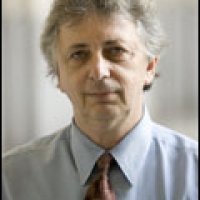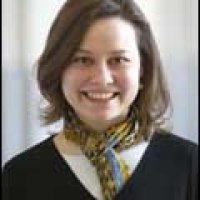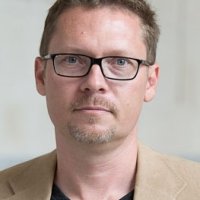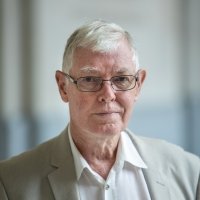The Devil in History: Communism, Fascism, and Some Lessons of the Twentieth Century
Vladimir Tismaneanu, professor of comparative politics at the University of Maryland College Park, will discuss his latest book The Devil in History: Communism, Fascism, and Some Lessons of the Twentieth Century which examines the relationship between communism and fascism.
Reflecting Vladimir Tismaneanu's personal experiences within communist totalitarianism, The Devil in History is about political passions, radicalism, utopian ideals, and their catastrophic consequences in the twentieth century’s experiments in social engineering. Tismaneanu compares communism and fascism as competing, sometimes overlapping, and occasionally strikingly similar systems of political totalitarianism. He examines the inherent ideological appeal of these radical, revolutionary political movements, the visions of salvation and revolution they pursued, the value and types of charisma of leaders within these political movements, the place of violence within these systems, and their legacies in contemporary politics.
The Devil in History explores thinkers who have shaped contemporary understanding of totalitarian movements—such as: Hannah Arendt, Raymond Aron, Isaiah Berlin, Albert Camus, François Furet, Tony Judt, Ian Kershaw, Leszek Kolakowski, Richard Pipes, and Robert C. Tucker. As much a theoretical analysis of the practical philosophies of Marxism-Leninism and Fascism as it is a political biography of particular figures, The Devil in History deals with the incarnation of diabolically nihilistic principles of human subjugation and conditioning in the name of presumably pure and purifying goals.
Ultimately, Tismaneanu argues that no ideological commitment, no matter how absorbing, should ever prevail over the sanctity of human life. He comes to the conclusion that no party, movement, or leader holds the right to dictate to the followers to renounce their critical faculties and to embrace a pseudo-miraculous, a mystically self-centered, delusional vision of mandatory happiness.
Joining Tismaneanu on the panel is Wilson Center Fellow Charles King and former CWIHP Senior Scholar Dennis J. Deletant.
Nida Gelazis, Senior Associate with the European Studies Program, will chair the event.
To purchase the book visit the University of California Press website.
Speakers




Emeritus Professor of Romanian Studies, University College, London
Hosted By

Cold War International History Project
The Cold War International History Project supports the full and prompt release of historical materials by governments on all sides of the Cold War. Read more


History and Public Policy Program
A leader in making key foreign policy records accessible and fostering informed scholarship, analysis, and discussion on international affairs, past and present. Read more


Global Europe Program
The Global Europe Program is focused on Europe’s capabilities, and how it engages on critical global issues. We investigate European approaches to critical global issues. We examine Europe’s relations with Russia and Eurasia, China and the Indo-Pacific, the Middle East and Africa. Our initiatives include “Ukraine in Europe”—an examination of what it will take to make Ukraine’s European future a reality. But we also examine the role of NATO, the European Union and the OSCE, Europe’s energy security, transatlantic trade disputes, and challenges to democracy. The Global Europe Program’s staff, scholars-in-residence, and Global Fellows participate in seminars, policy study groups, and international conferences to provide analytical recommendations to policy makers and the media. Read more
